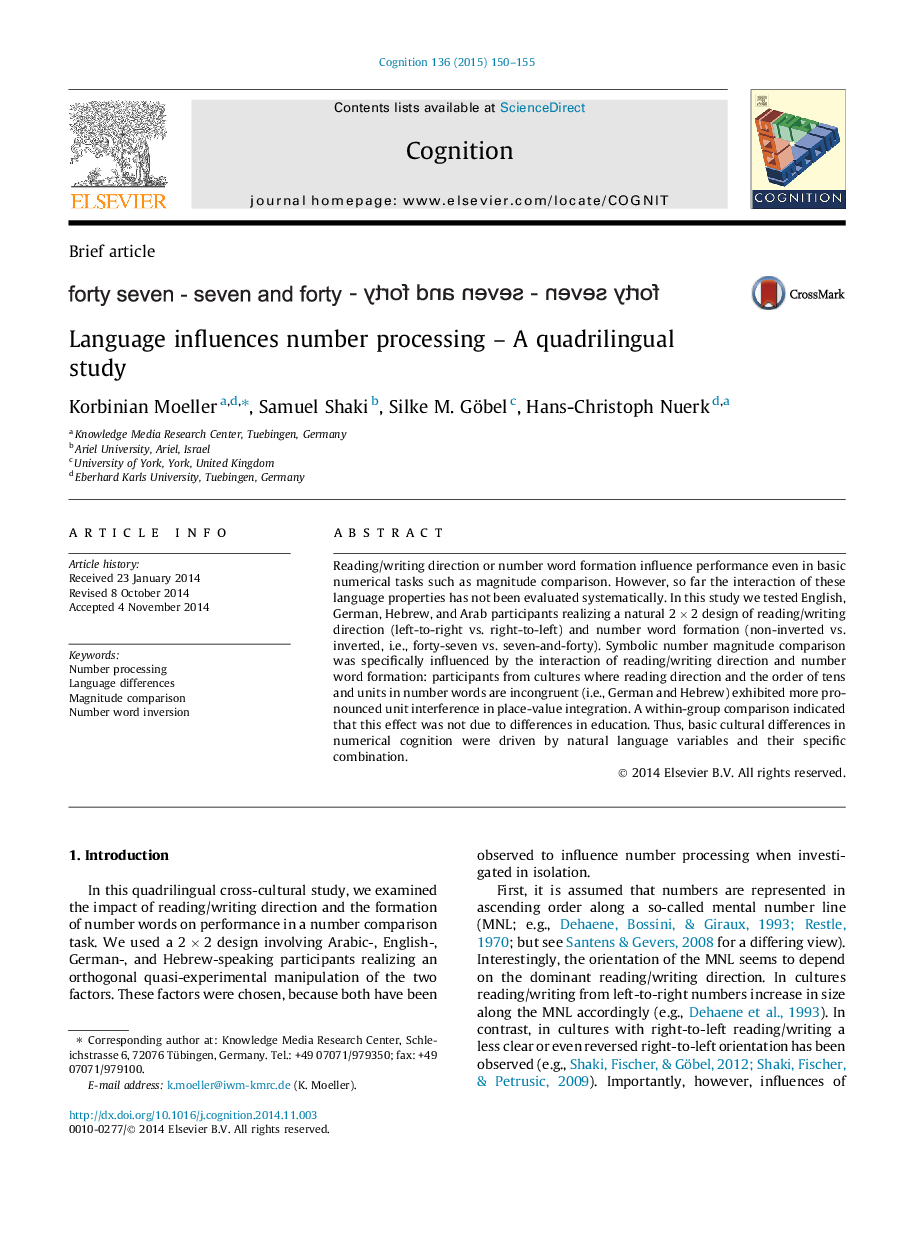| Article ID | Journal | Published Year | Pages | File Type |
|---|---|---|---|---|
| 7287456 | Cognition | 2015 | 6 Pages |
Abstract
Reading/writing direction or number word formation influence performance even in basic numerical tasks such as magnitude comparison. However, so far the interaction of these language properties has not been evaluated systematically. In this study we tested English, German, Hebrew, and Arab participants realizing a natural 2Â ÃÂ 2 design of reading/writing direction (left-to-right vs. right-to-left) and number word formation (non-inverted vs. inverted, i.e., forty-seven vs. seven-and-forty). Symbolic number magnitude comparison was specifically influenced by the interaction of reading/writing direction and number word formation: participants from cultures where reading direction and the order of tens and units in number words are incongruent (i.e., German and Hebrew) exhibited more pronounced unit interference in place-value integration. A within-group comparison indicated that this effect was not due to differences in education. Thus, basic cultural differences in numerical cognition were driven by natural language variables and their specific combination.
Related Topics
Life Sciences
Neuroscience
Cognitive Neuroscience
Authors
Korbinian Moeller, Samuel Shaki, Silke M. Göbel, Hans-Christoph Nuerk,
